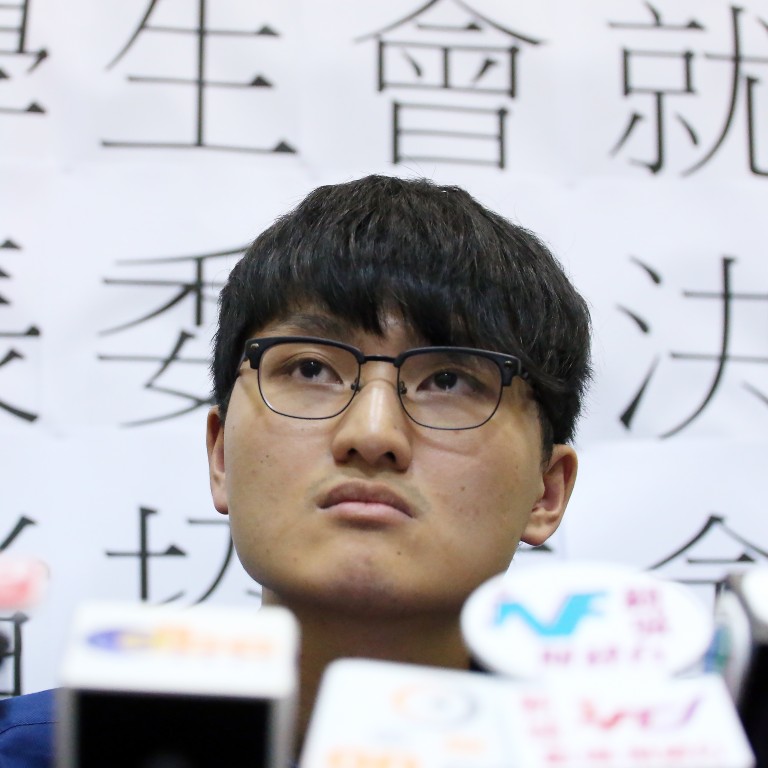
University of Hong Kong council leak prompts debate over transparency
On Tuesday, there were red faces all around when barely two hours after the university's governing council voted 12-8 against appointing law professor Johannes Chan Man-mun to a managerial post, a student representative let the cat out of the bag.
Billy Fung Jin-en abandoned confidentiality rules and exposed the reasons pro-government members of the governing council of the University of Hong Kong had given in the closed-door meeting for rejecting Chan for the post of pro-vice-chancellor. Their arguments allegedly ranged from him not having a doctorate to his failure to "show sympathy" to a council colleague who collapsed in July when students stormed a meeting.
It was not as if the council had been unprepared. Sources told the that before the discussion on the appointment began that afternoon, a council member suggested that all members have their phones taken away to stop anyone leaking the closed-door discussions to the media.
The phones were put in sealed envelopes and were only returned when the meeting ended.
They took this extra step even though the council had been tightening its confidentiality rules over the years.
Advocates of the move argued it made for more free-ranging discussion, while critics claimed it also allowed people to offer blunt or even offensive comments without fear of being challenged publicly. Yet others said outsiders should respect the council's decisions.
The council updated its Guide and Code of Practice in August amid accusations it had been delaying Chan's appointment due to political interference.
In the latest version, the guide says "it is absolutely necessary to keep confidential the council agenda, supporting papers and minutes".
In last year's version, the line said "it is necessary" to keep things confidential, while the 2004 version read "it is normally necessary".
Dr William Cheung Sing-wai, chairman of the HKU Academic Staff Association, said ever since the latest change, some council members had told him their discussions had been more "one-sided" towards members who supported the government.
But pro-establishment lawmaker Christopher Chung Shu-kun, who is also a member of HKU's court that has the power to amend university statutes, said the council needed to change its rules according to new circumstances. He called on every council member to obey the rules and outsiders to respect the governing body's decisions.
While the council is considering punishment for Fung, Chung said the student leader should be kicked out for breaking the rules.
The controversy has raised questions as to how confidentiality rules being tightened and then breached will affect the council.
Chong Yiu-kwong, a solicitor and senior teaching fellow at the Institute of Education's department of education policy and leadership, said it was not possible to make everything absolutely confidential. He cited exemptions such as when the council's discussions were part of a police investigation or a court case, when someone's rights were infringed or when there were "overriding ethical considerations".
He said a public university funded by taxpayers' money should strike a balance between transparency and confidentiality. "The university is not an independent kingdom," he said.
Former civil service minister Joseph Wong Wing-ping said in many countries, whistle blowers who revealed confidential information for "greater justice" would be protected.
The Guide for Members of Governing Bodies of Universities and Colleges in England, Wales and Northern Ireland, which the HKU council's code of practice refers to, says: "The agenda … and the signed minutes of governing body meetings … should generally be available for inspection by staff and students."
But matters related to individuals or commercial sensitivity may be kept confidential, it says.
This is the crux of the issue - whether information relating to individual appointments ought to be made public even if a person has waived his right to confidentiality and the implications for hiring decisions.


